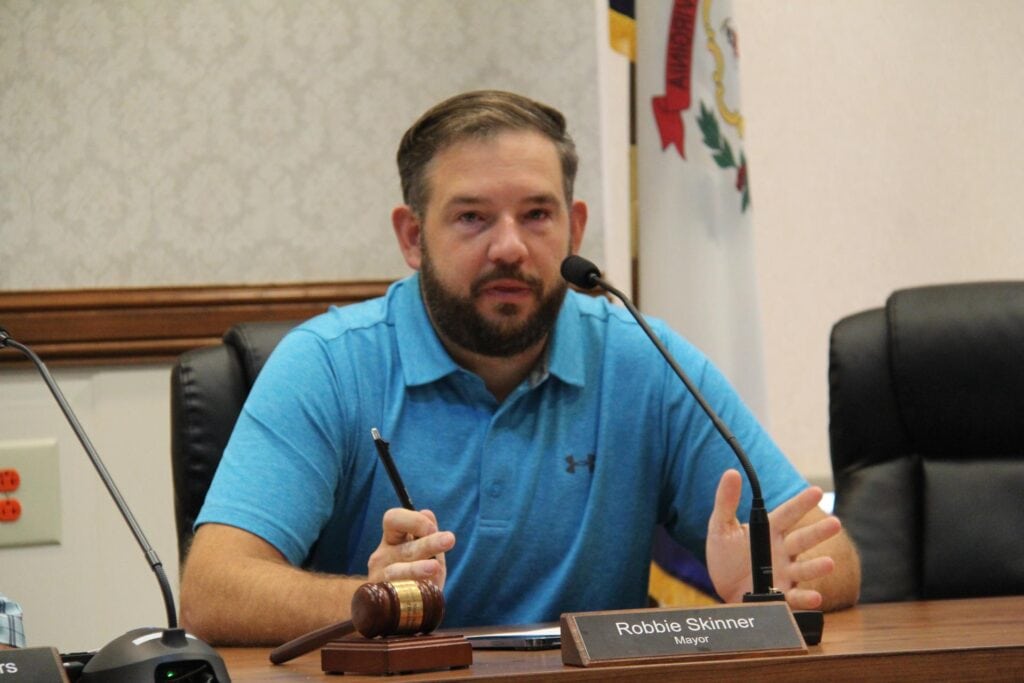BUCKHANNON – The Fred W. Eberle Technical Center students who qualified for the national competition that features the best of the best in an array of career and technical fields typically demonstrate two qualities: fierce dedication and meticulous attention to detail.
And although they display other solid abilities, above all, the 10 FETC students who traveled to Atlanta, Georgia in June to participate in the 2022 Skills USA National Championships embody those two qualities, Robert Lowther, FETC electric technology instructor, said recently.

It’s what helps them succeed at such an advanced level – and what assisted them in winning both their state and local career field contests.
“Across the board, number one, it takes dedication,” Lowther said. “You have to be dedicated to what you’re doing, especially at the national level; they really split hairs at these contests. Everything’s down to 1/16th of an inch. They have to have attention to detail. They have to have that hands-on ability – they have to be able to put into play what they’re studying. They have to have academic knowledge as well.”
Successful students must also excel at hands-on skills and academic knowledge.
“They have to be a really well-rounded student who has the drive to do it,” Lowther said. “You can’t just go in and do it with sort of a haphazard attitude. You have to have a plan and you have to be dedicated to your craft, basically.”
Although the number of students FETC sends to the national SkillsUSA Championships varies, five is about average, so FETC administrators and instructors were thrilled when 10 qualified for the competition this year. The national competition, which took place June 20-24 and showcased the abilities and talents of more than 6,500 award-winning career and technical students from across the U.S., involved hands-on contests in 108 trade, technical and leadership fields, according to the SkillsUSA website.
Just a few of those include medical assisting, cosmetology, culinary arts, electrical technology and more.
FETC’s participants in this year’s SkillsUSA Championships included the following students: Amanda Chidester in cosmetology (post-secondary), Jacob Bailey in diesel equipment technology (secondary), Lucas Queen in electrical construction wiring (secondary), Bryce Manolidis in electrical construction wiring (post-secondary), Nate Perry in industrial motor control (secondary), Timothy Wood in welding (post-secondary), Emily Felton in medical assisting (secondary), and the post-secondary trio of Hanna Wolford, Gretel Schroeder and Harley Davis in welding fabrication.
“Our school was well-represented with a few students placing in the top 10 in the nation,” Lowther said.
Lowther said he can sometimes tell which students will succeed and earn the right to compete in a national arena by observing them in FETC’s simulated workplace, which uses a time clock, uniforms and more to create the feeling that students are actually showing up for a real job.
“The student [Nate Perry] who went (to the national competition) for industrial motor controls, for me, was my shop foreman, so you could tell from the very beginning that he had leadership skills about him and that he was serious about his craft,” Lowther said. “With both of the students who went for electrical construction wiring (Bryce Manolidis and Lucas Queen), you could tell from the beginning that they were dedicated to what they were doing.”
The trip to Atlanta wasn’t all work and no play, though. FETC students visited the Atlanta Aquarium and had the chance to catch a Flo Rida concert. Most of them, however, were too tired to jam out, Lowther said.
“They compete over a several-day period from 8 a.m. to 3 p.m., so it’s a work day,” he said. “They were tired at the end.”
And even if the competitors didn’t eke out a top-10 finish, the five-day trip to Atlanta offered ample opportunities to network with peers and form connections with would-be employers from across the U.S.
“Regardless of where they placed, it is a learning experience,” Lowther said. “It’s a nationwide contest, so things that we see locally may be a little different than you see on a national scale; for instance, in the electrical field, what something is called here, might not be referred to by the same name in another state. It just varies from state to state how things are done, and it gives the students an opportunity to experience their craft outside of their local area, and to network with their peers”
“I don’t think the students realize, until they actually go there, how large of an event it really is,” he added. “It takes up the Georgia World Conference Center, which is a tremendous building – it almost feels like the building that never ends. We always joke that they can be baking cookies on one side of it and starting diesel trucks on another, and you don’t smell either one of them … It’s great. They learned a lot about different employment opportunities on a national level — it’s just an overall good experience for the students.”













